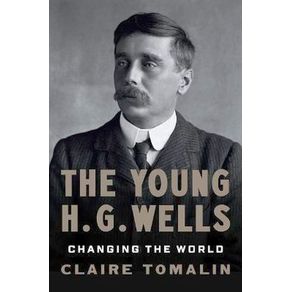Upon the death of H. G. Wells, in 1946, George Orwell remarked, If he had stopped writing in 1920 his reputation would stand quite as high as it does: if we knew him only by the books he wrote after that date, we should have rather a low opinion of him. For though Wells is remembered as the author of such influential books of science fiction as The Time Machine, The Invisible Man, and The War of the Worlds, and as a man whose visions of the future remain unsurpassed, his success as a writer of fiction stopped short in his forties. He remained famous, with an established reputation across England, America, and France, but, remarkably, never again equaled his early writing achievements.
Here for the first time, Claire Tomalin brings to life the early years of H. G. Wells, and traces his formation as a writer of extraordinary originality and ambition. Born in 1866, the son of a gardener and a housekeeper, Wells faced poverty and ill health from a young age. At 12, he was taken out of school, torment for a child with intellectual aspirations. Determined, Wells won scholarships and worked towards science degrees. Though he failed his final exams, he was soon writing text books, involving himself in politics, and contributing to newspapers. Still suffering from serious illness, as well as multiple physical breakdowns, Wells understood early on the impulse to escape - through books, art, and his imagination - and he began to make his name by writing short stories. But it wasn't until the publication of his first novel, The Time Machine, in 1895, that Wells attained the great success he had so longed for. His book, which transformed the way readers saw the world, was hailed as an extraordinary accomplishment.
Until the period leading up to the first world war, Wells wrote books at an almost unprecedented speed - about science, mysteries, and prophecies; aliens, planets, and space travel; mermaids, the bottom of the sea, and distant islands. He chronicled social change, an

